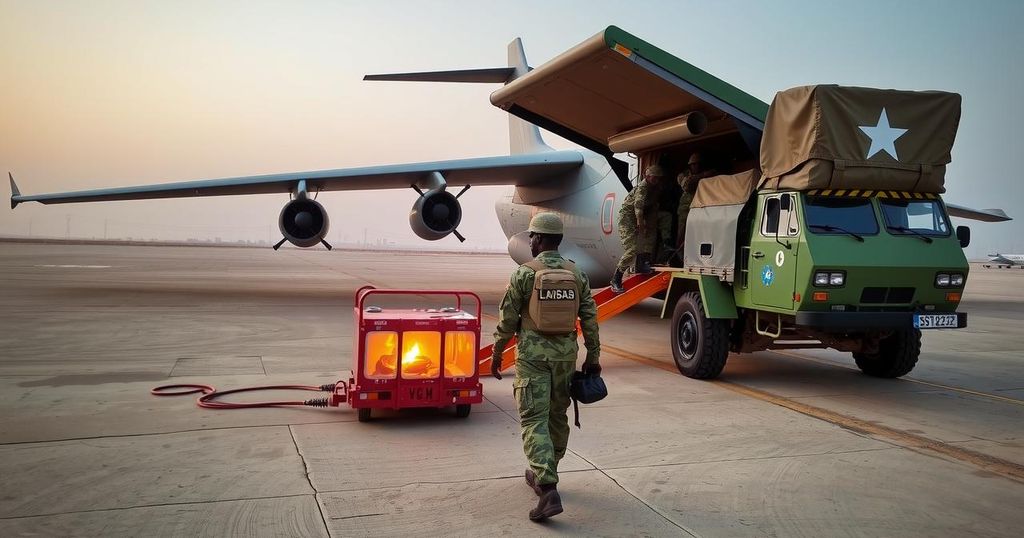Egypt is enhancing its military presence in Somalia by dispatching troops for a new African Union mission aimed at combating the terrorist group Al Shabab. This move, occurring against the backdrop of tensions over the Nile River with Ethiopia, reflects Cairo’s efforts to strengthen its influence in the Horn of Africa while boosting Somalia’s security capabilities.
Egypt is increasing its military involvement in Somalia as part of a new African Union initiative aimed at combating the terrorist group Al Shabab. The reassignment of troops is a strategic move by Egypt to strengthen its influence in the Horn of Africa, particularly in the context of its long-standing dispute with Ethiopia over the Grand Ethiopian Renaissance Dam (GERD). This development follows a request from Somalia for Egyptian troops to replace Ethiopian forces currently participating in an African Union mission, thus allowing Cairo to establish a reinforced military presence near Ethiopia.
In a military cooperation agreement signed earlier this year, Egypt has already dispatched several thousand troops to aid in training Somalia’s security forces and providing protection for high-ranking officials. The UN Security Council recently ratified the new mission, dubbed the African Union Support and Stabilisation Mission in Somalia (AUSSOM), which is set to replace the African Union Transition Mission in Somalia (ATMIS).
Egypt’s commitment to this mission underscores its intent to assert greater influence within African affairs amidst other nations’ efforts in the region. Analysts note that Ethiopia’s absence from this new mission may enhance Egypt’s position in the ongoing negotiations regarding Nile water usage. Tensions between Somalia and Ethiopia had intensified following Ethiopia’s maritime agreement with Somaliland, which Somalia perceives as a violation of its sovereignty. Throughout these developments, Egypt’s engagement with Somalia has strengthened since the controversial deal.
Notably, while Egypt’s military support in Somalia aims to stabilize the region, it also reflects the larger geopolitical competition with Turkey over influence in East Africa. Furthermore, Egypt’s military presence in Somalia is increasingly seen as a critical strategy to safeguard its national water security interests, particularly in light of ongoing disputes over the Nile River with Ethiopia. Egyptian officials emphasize the paramount importance of the Nile to Egypt’s survival and development.
The ongoing military deployment by Egypt in Somalia is intricately tied to the broader geopolitical dynamics in the Horn of Africa, particularly the longstanding disputes over water resources with Ethiopia. The Grand Ethiopian Renaissance Dam has raised significant concerns in Cairo regarding water security, as Ethiopia’s actions are interpreted as potential threats to Egypt’s vital water supply, which is heavily reliant on the Nile River. This context provides insight into why Egypt seeks to enhance its military footprint in Somalia, not only to counter terrorism but also to exert pressure on Ethiopia.
Egypt’s military involvement in Somalia represents a multifaceted strategy focusing on addressing security threats and enhancing its influence amid contentious regional dynamics, especially concerning the Nile River’s crucial resource management. By participating in the African Union mission and replacing Ethiopian troops, Egypt aims to mitigate the threat of Al Shabab while consolidating its position as a key player in African affairs. This deployment may also reshape the existing landscape of regional relations, particularly between Egypt, Somalia, and Ethiopia, potentially impacting future negotiations regarding vital water resources from the Nile.
Original Source: www.thenationalnews.com






